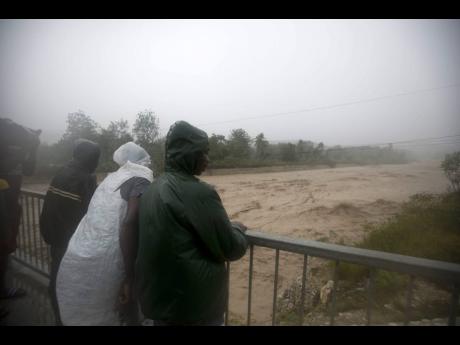When hurricanes and COVID collide
The 2020 Atlantic hurricane season begins in less than two weeks.
Colorado State University, CSU, researchers have predicted that the season will be “above-average”. They cited the likely absence of El Niño as the primary factor, saying: “El Niño tends to increase upper-level westerly winds across the Caribbean into the tropical Atlantic, tearing apart hurricanes as they try to form.” Tropical and subtropical Atlantic Sea surface temperatures are currently warmer than their long-term average values and are consequently also considered another factor favouring an active hurricane season.
The CSU Tropical Meteorology Project team is forecasting 16 named storms during the season, which runs from June 1 to November 30. Researchers expect eight of those storms to become hurricanes and four to reach major hurricane strength (Saffir/Simpson category 3-4-5) with sustained winds of 111 miles per hour or greater.
The projected 2020 hurricane activity will be about 140 per cent of an average season. By way of comparison, 2019’s hurricane activity was about 120 per cent of the average season.
The season last year was notable for Hurricane Dorian. It devastated the north-western Bahamas. Tropical Storm Imelda also caused major flooding in parts of south-east Texas.
The information from CSU is worrying. When it is viewed against the ongoing disruption caused by COVID-19, risk analysts say the global pandemic is a predictable 100-year event, and our island’s unpreparedness for it, the 2020 Hurricane Season will be unlike others.
Kayla Young, who writes for a Cayman Islands newspaper, offered her thoughts on May 16 about the potential convergence of the pandemic and hurricane events. Her ideas are also relevant to Jamaica.
“The island’s disaster-contingency arm has been partially activated since early March and its team has spent much of 2020 in action responding to a 7.7 magnitude earthquake, a tsunami scare … and an ongoing pandemic,” said Young. (She got the earthquake date wrong. It was January 28, not early March).
“Now, with the 1 June start of the hurricane season weeks’ away, emergency planners must grapple with a potentially active storm season, combined with the complications of COVID-19. For the government, this prospect is a source of anxiety, but also a call for action,” she wrote.
Do the ODPEM technocrats in Jamaica and other policymakers agree?
ODPEM, according to the information posted on its website on March 10, activated the National Emergency Operations Centre, the NEOC, as “the designated administrative hub for disaster or emergency response coordination. It is, therefore, the ‘nerve centre’ of disaster response and recovery services”.
The activation took place when the island’s first case of COVID-19 was reported. However, there was nothing on the site to suggest that planning was also taking place for this year’s hurricane season during COVID-19. Was this an oversight, or are we likely to be caught flat-footed again?
COVID-19 did not catch GraceKennedy unprepared. In its first interim report to stockholders for 2020, the company said the group implemented its Business Continuity Plan, BCP, “specifically as it relates to the GK Pandemic Guidelines segment, a supply chain risk assessment action plan, stringent inventory management, and the adoption of a comprehensive COVID-19 action plan addressing group-wide manufacturing”.
Effective Planning
Business continuity planning is defined as “the process involved in creating a system of prevention and recovery from potential threats. The plan ensures that personnel and assets are protected and can function quickly in the event of a disaster. The BCP is generally conceived in advance and involves input from key stakeholders and personnel.
If GraceKennedy has a plan for COVID-19, presumably they must also have a plan to guide them in relation to other disruptive forces like hurricanes, earthquakes, and floods.
The Government recognises the importance of business continuity planning. Industry, Commerce, Agriculture and Fisheries Minister Audley Shaw, according to state media Jamaica Information Service, recently encouraged micro, small, and medium-sized enterprises to adopt his ministry’s BCP aimed at mitigating against risks and failures.
“What is of grave concern is how prepared our businesses are to utilise the digital mode of operation. COVID-19 has put a wrench in the operation of many local businesses. Many lack the businesses continuity plan embedded with the adaptation of technology that would allow for their continued profitability and longevity. Businesses now need to focus some resources in this area,” the minister said.
The Financial Services Commission says that it “is closely monitoring its licensees amid the COVID-19 pandemic and the possible impact the actions and responses to this situation will have on the securities, insurance, and private pensions sectors … (and) where appropriate, will exercise its discretion in the manner permitted by its statute and will also implement enhanced monitoring if required”.
I interpret that statement to mean that the regulator recognises that there is a possibility that the present conditions could be harmful to insurance companies as they have been to other sectors of the economy.
This is obviously without taking into consideration the effect of a hurricane event like the one that wreaked havoc in The Bahamas last year.
How prepared is Jamaica for an “above average” 2020 hurricane season during COVID-19?
n Cedric E. Stephens provides independent information and advice about the management of risks and insurance. For free information or counsel, write to: aegis@flowja.com.

